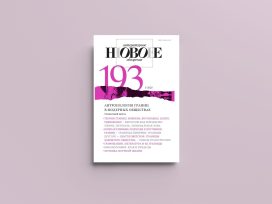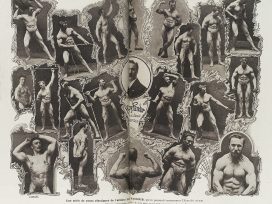When the world’s most famous humanitarian philosopher publishes a panegyric on the directorial debut of the world’s most famous Hollywood humanitarian actress, one shouldn’t be surprised. Writing in Huffington Post, Bernard-Henri Lévy described Angelina Jolie’s In the Land of Blood and Honey (2011), a love story set against the background of the Bosnian War, as “a film that, to borrow Godard’s expression, is not just a film, but a just film, rendering justice to the dead and honor to the survivors. […] Consider this Bosnian society that beheld, there, its most painful secret. Here is, suddenly, a great actress, and a great lady as well, who has used her prestige so that, for the first time, they might be allowed to raise their downcast heads.”
In the Land of Blood and Honey, which opened at the Berlin film festival in February and arrived at ex-Yugoslavian cinemas shortly after, has not been met with quite the same degree of enthusiasm from quarters. From the outset, the film has generated controversy, including protests by Bosnian Women (who are now praising the film), a plagiarism suit, death threats and allegations that Serbian hackers had downgraded the film’s Internet ratings.
 Once Jolie’s tour started, however, the film received huge media attention, at least in Bosnia and Herzegovina and Croatia, with presidents, diplomats and city mayors welcoming the Hollywood star as if she were another Clinton visiting our area again. The only difference is that Clinton never actually visited Zagreb in 1996, he just landed at the airport in his famous leather jacket and had a short conversation with the president. Jolie at least stayed in Zagreb for a few hours, visited the cinema and went straight back to the airport. It was a huge spectacle for a small country like Croatia and, of course, almost no one talked about the film itself.
Once Jolie’s tour started, however, the film received huge media attention, at least in Bosnia and Herzegovina and Croatia, with presidents, diplomats and city mayors welcoming the Hollywood star as if she were another Clinton visiting our area again. The only difference is that Clinton never actually visited Zagreb in 1996, he just landed at the airport in his famous leather jacket and had a short conversation with the president. Jolie at least stayed in Zagreb for a few hours, visited the cinema and went straight back to the airport. It was a huge spectacle for a small country like Croatia and, of course, almost no one talked about the film itself.
The “gray zone”
The movie tells the story of Danijel, a soldier fighting for the Bosnian Serbs, and Ajla, a Bosnian Muslim who was involved with him before the war and is now a captive in the concentration camp he oversees. It’s a bad repetition of the same good old story depicted most recently in The Reader (Stephen Daldry, 2008), and unforgettably in The Night Porter (Liliana Cavani, 1974). In short, it’s a story about the perpetrator and the victim and a reversal of these perspectives as the story goes on. On the one hand you have a war criminal (a concentration camp guard in The Reader, the former SS officer in The Night Porter, the Serbian officer in Jolie’s movie), on the other hand you have the victim (the boy who read to the concentration camp guard, the concentration camp survivor, the innocent Muslim woman in the Bosnian war). What all three films have in common is a fatal love affair between a criminal and an innocent victim, the only difference being that, in The Reader, the boy finds out eight years later, when as a law student, he observes a trial of several women (including his former lover) accused of letting 300 Jewish women die in a burning church.
Common to all these films is also that the roles become less and less clear as the story develops. The best example is The Night Porter, where thirteen years after the concentration camp, Lucia meets Maximillian again, who is now working at a Vienna hotel; instead of exposing him, she falls back into their sadomasochistic relationship. The relationship is what Primo Levi – remembering the case of the Sonderkommando, the “special units” of camp inmates in charge of bringing their neighbours to the gas chambers – calls the “gray zone”, the zone in which the “long chain of conjunction between victim and executioner” comes loose. Or, as Giorgo Agamben puts it in his Remnants of Auschwitz, “where the oppressed becomes oppressor and the executioner in turn appears as victim. A gray, incessant alchemy in which good and evil and, along with them, all the metals of traditional ethics reach their point of fusion”.
The best expression of this new terra ethica was articulated by Michael in Bernhard Schlink’s novel The Reader, on which the film was based: “I wanted simultaneously to understand Hanna’s crime and to condemn it. But it was too terrible for that. When I tried to understand it, I had the feeling I was failing to condemn it as it must be condemned. When I condemned it as it must be condemned, there was no room for understanding. But even as I wanted to understand Hanna, failing to understand her meant betraying her all over again. I could not resolve this. I wanted to pose myself both tasks – understanding and condemnation. But it was impossible to do both.” In other words, when we try to understand the crime, then we stop condemning it; and when we condemn, then we stop understanding it.
Love beyond blood and honey
So, what is missing in Jolie’s movie? First, the narrative is shallow and the characters are flat; except in a few dialogues, we don’t see all the horror of the characters’ doubts ending in the abyss of the impossibility of distinguishing good and evil. What we have in The Land of Blood and Honey is exactly the opposite of Nietzsche’s famous formula: “That which is done out of love always takes place beyond good and evil.” The Muslim woman betrays her lover, and her lover, the Serbian officer, kills her. In the film, there is no love that is superior to (ethnic) differences: Ajla chooses her (Muslim) side, and Danijel chooses his (Serbian) side. Instead of withdrawing into an isolated universe like the couple from The Night Porter, condemning themselves consciously and readily to a life without Muslims and Serbs, without food or essential supplies, they choose to remain faithful to the constructed difference (Serb/Muslim) against which they have been resisting.
This brings us to the main ideological problem of the film: the film’s intention is to blur the standard dichotomy of perpetrator-victim by telling the story of a Muslim woman who falls in love with a Serbian officer, yet it does precisely the opposite. There is no big tragedy: Ajla has no moral doubts like Michael in The Reader and is happy in her self-chosen cell, where she can paint and enjoy dinners with her partner; Danijel, meanwhile, is merely serving his father, a Bosnian-Serb general. Here we have a superficial recreation of the old Oedipal Complex, which is again deprived of its tragic dimension. When Danijel’s father allows another soldier to rape Alja, Danijel later kills the soldier; but instead of finally standing up against his father, he continues to serve him, in the end doing exactly what his father would wish him to do: kill his mistress. The only potentially subversive element of the film is the enunciation of a simple, even naive “sorry”. Instead of trying to find a solution together with his lover (why not the Night Porter-solution, escaping to a deserted villa in the mountains above Sarajevo?), Danijel merely repeats a castrated “sorry” (for the raped women in the camp he oversees, etc.); later, after revealing the shelter of Danijel and his Serbian unit, Alja repeats the same excuse (izvini).
Difficult as this is to imagine – surely Danijel would have tried to explain to Alja the reasons for his taking part in ethnic cleansing – this is the point of the film where the story resembles to the ancient myth of Echo and Narcissus. Alja (a Muslim) as Echo who, cursed by the jealous gods, is never allowed to speak for herself (like all the raped women in the camp) and condemned to repeat the ends of other’s phrases; and Danijel (a Bosnian Serb) as Narcissus, who can see only his own image and ends up falling into a trap of his own making (aided by his father). There is a memorable part in Kirby Dick und Amy Ziering Kofman’s documentary Derrida in which Jacques Derrida explains this deadlock:
In a certain way, she [Echo] appropriates his language. In repeating the language of another, she signs her own love. In repeating, she communicates with him. She speaks her own name by just repeating his words. And as always with speech, one is blind. And at base, Echo blindly but quite lucidly corresponds to Narcissus. It’s a story of love, after all. She corresponds to Narcissus who is also blind, because Narcissus realizes that he can only see himself, that it’s only his own image he is seeing in the water. To see only oneself is a form of blindness. One sees nothing else. Echo and Narcissus then are two blind people who love each other. Now how do two blind people love each other? That’s the question.
In repeating the word “sorry”, Alja is responding to Danijel in his own words, and in repeating she communicates with him: yes, she loves him, but she betrays him for the same reason that he betrayed her when he was allowing the atrocities, seeking forgiveness with a simple and meaningless “sorry”. The real subversion – maybe only this could have saved the movie – would have been if Danijel had accepted her apology and gone on as if nothing had happened, as Alja had done previously: “Yes, I know we are following ideological constructs, that there are no real differences between Muslims and Serbs, and yes, I know that you were only doing your duty and that you wanted to protect your neighbours, but I still love you and I don’t care about your betrayal because it’s just another fall into the trap of ethnic hatred.”
The curious case of Andrej Nikolaidis
What is missing in Jolie’s movie is exactly this tragic dimension of fatal love. The film thus not only misrepresents tragic love itself, but also its potential to go one step further. This could be best illustrated by the strange case of Andrej Nikolaidis, the well known Montenegrin writer whose novel The Coming has just been published in English translation. Nikolaidis was born and raised in Sarajevo, but managed to flee in 1992 and settle in Montenegro. A consistent anti-war activist and promoter of human rights, in 2004 Nikolaidis published a piece entitled “The Executioner’s Apprentice”. In it, he denounced the Serbian director Emir Kusturica for having been one of Serbia’s biggest media stars at the time “when Milosevic’s war propaganda supported people who had something stupid but patriotic to say and created news for people who were insensitive to human suffering, blind to their own guilt, and idiotic enough to believe in their own righteousness”. Nikolaidis was successfully sued by the Serbian director for libel; after several appeals he was forced to pay 12,000 euros damages to Kusturica for causing “mental anguish”. In January 2012, Nikolaidis published a new text titled “What is Left of Greater Serbia”; in it, he dared to offer a completely different explanation of an attempted terrorist attack during the official celebration of the twentieth anniversary of the Republika Srpska, one of the two main political entities of Bosnia and Herzegovina (in)famous for of its “special ties agreement” with Serbia. What followed was an unprecedented controversy that provoked a series of threats to Nikolaidis and even an official diplomatic dispute between Serbia and Montenegro.
What was the problem? Nikolaidis had cited Walter Benjamin’s famous proverb that “there is no document of civilization which is not at the same time a document of barbarism”, claiming that the political entity of the Republika Srpska was a product of genocide. It would have been “a civilizational step forward”, continued Nikolaidis, had the unsuccessful terrorist used the dynamite not because of national and ethnic hatred, but because “he was a dissatisfied worker who understood that national and religious antagonism was just a masque under which the elite hides the basic antagonism of every society – class antagonism”. Soon after, a Serbian daily claimed on its front page that Nikolaidis was a terrorist who intended to kill the Serbian president and the Patriarch. Informed by journalists that Nikolaidis had recently received the European Union Prize for Literature, the president of Republika Srpska Milorad Dodik answered: “Feel free to quote me: Fuck his literature!” It was only a matter of time before Emir Kusturica would show up: when he did, he didn’t resist describing Nikolaidis as a “Montenegrin Taliban” who “encourages terrorism in the Balkans”. Last but not least, Kusturica threatened to sue Nikolaidis again! It might be added that Kusturica and his “No Smoking Orchestra” perform a song called “Wanted Man”, which is dedicated to none other than Radovan Karadzic, the first President of the Republika Srpska currently facing war crimes charges in The Hague.
“A civilizational step forward”
So, again, what’s the problem? The problem is that the disputed paragraph in which Nikolaidis talks about “a civilizational step forward” is many things, but not nationalism: it opposes any sort of nationalism. The failed terrorist attack would have been “a civilizational step forward”, according to Nikolaidis, had the poor terrorist realized that it’s not about national hatred but about class struggle. And exactly this is the biggest problem of Angelina Jolie’s film. Once again we have the same old story about the Serbs and Muslims who couldn’t live in one country; the story about war as the result of ethnic hatred and nationalism. At no point in the film is even a trace of other causes for the fall of Yugoslavia; only old myths about Serbs proud of their role in defending Europe from the Muslims, etc. So when Bernard-Henri Lévy claims that the film is set in a “blind spot in twentieth century history” he is right – only that the “blind spot” is not the Bosnian war as such. Srebrenica is not only being used a propos of Syria as justification for “humanitarian intervention”, but has been (mis)used for the last two decades all around the world. In other words, isn’t Lévy, who called Sarkzoy to demand intervention in Libya, himself obscuring the causes of such interventions? Might we not also pose the question: Why Syria and not Israel? Why isn’t Lévy praising a film about the Israeli atrocities going on today in the West Bank, instead of a war that happened in the Balkans twenty years ago?
Of course, we still feel the consequences of the war in all regions of ex-Yugoslavia, from Croatia, Bosnia and Herzegovina, to Serbia and Kosovo. And, yes, Jolie’s film was a big step in raising awareness about the estimated 50,000 Bosnian Muslim women and girls raped by Serbian forces during the first years of the war. But if we conduct a simple experiment and move the film from Bosnia to any other warzone, removing the occasional references to Serbian ideology, wouldn’t the film keep on functioning? That’s the problem of The Land of Blood and Honey: the only cause it can find for the conflict is ethnic hatred (and sexual lust). Yet at the time of its Croatian premiere, the minister of finance is announcing new austerity measures and privations, not only in healthcare and social security but also prisons. The same goes for the rest of the ex-Yugoslavian region, where “war tycoons” first used the chaos created by the war to rob (“privatize”) state companies and industries (there is not a single trace of this “special unit” in Jolie’s film), and later where “structural adjustments” are being carried out officially and legally by the state.
When one Bosnian film critic said, “Angelina Jolie’s film is the best thing to happen to Bosnia and Herzegovina since the Dayton Agreement”, one should reply by saying the opposite: what is finally needed for all ex-Yugoslavian countries is a land not of blood and honey but a Land of Blood and Money: a film that would show how the atrocities were carried out not in the name of the Nation or Ethnic Belonging, but – as always – in the name of Money. Those, like Bernard-Henri Lévy, who think the film conveys the “truth” about the Yugoslavian war are either ignorant or deliberately conceal the real issue; they fall into the same trap as the Serbian soldier who killed his great love because, in the end, he started to believe the story told by his vicious father. In the end, what remains is not renewed interest in the war, but only the media spectacle and questions to Jolie such as: “Will you visit Croatia’s beautiful coast next summer?”. Her answer: “Brad is already looking at the photos and is interested”. So much for Lévy’s “blind spot”. As the official slogan of the Croatian Tourist Board puts it: “Small country for a big holiday”.







